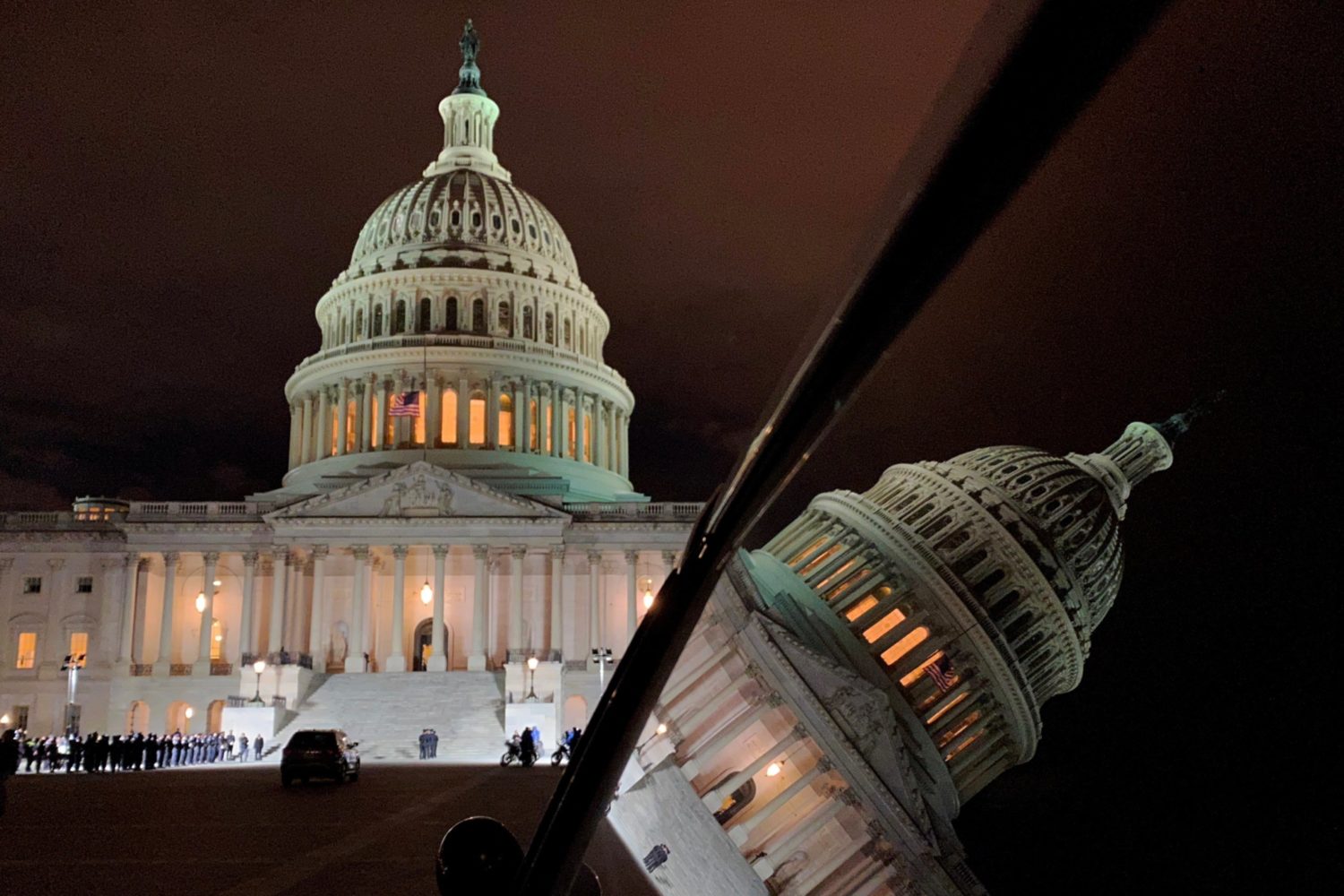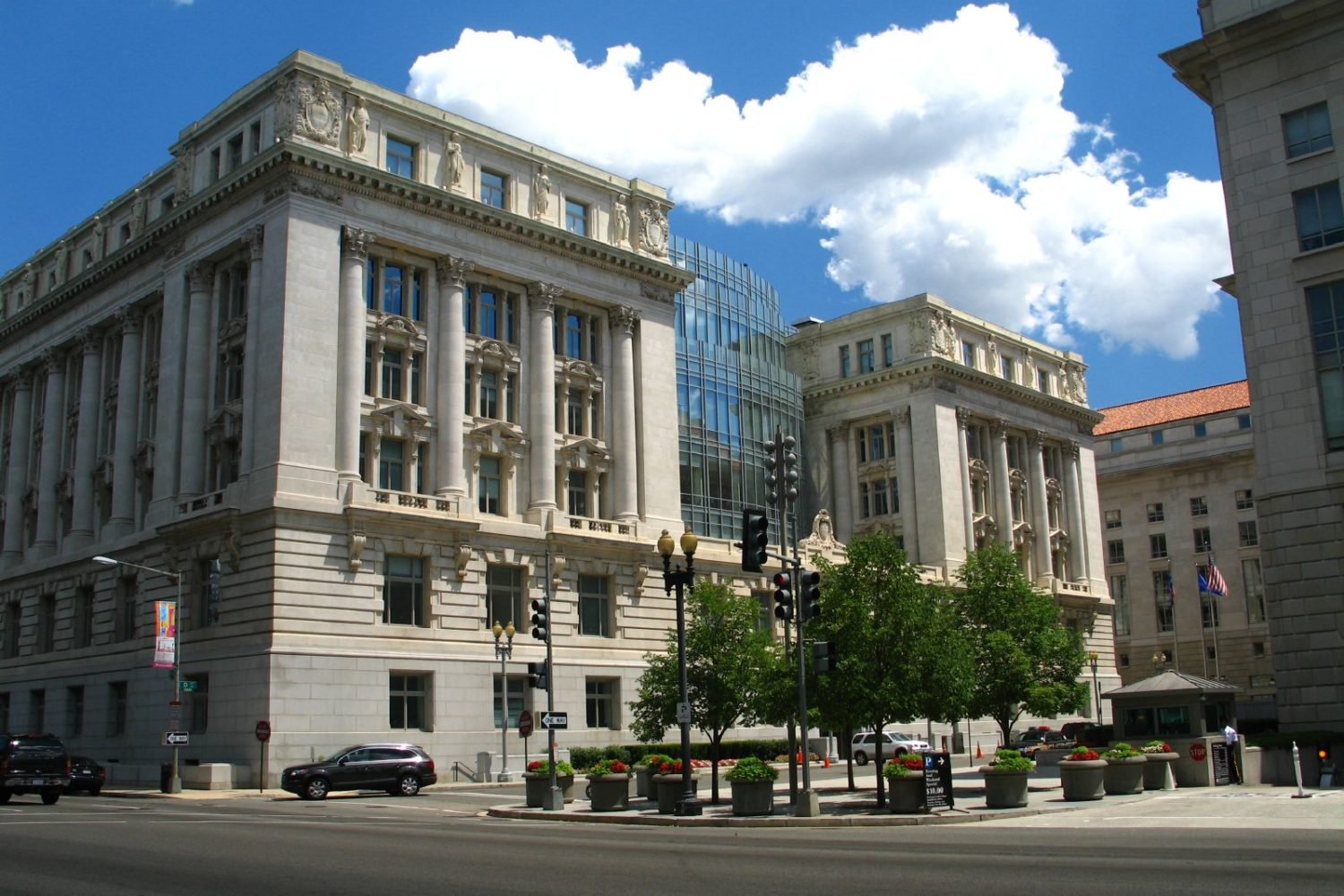DC Councilmembers Janeese Lewis George and Brianne K. Nadeau introduced legislation Monday night that would help fund local journalism through a system of “news coupons,” which registered voters could direct to news outlets of their choice—provided that those outlets meet certain criteria.
The plan, first reported by Axios on Monday, is aimed at a problem that has bedeviled news organizations for years: How to support local news, which by definition reaches a relatively small number of people, when the predominant economic theory of online publishing requires reaching much larger audiences. Even the Washington Post, which is owned by one of earth’s wealthiest humans, recently announced plans to make deep cuts to its local operations.
Here’s how George’s and Nadeau’s proposal would work:
How much money are we talking about here?
The bill calls for setting aside .1 percent of the District’s general fund budget to create a pool of money. In fiscal year 2024, that would be about $11.5 million.
What publications would be eligible?
The legislation defines eligible publications as those whose:
• Primary activity is reporting on local news;
• Allow DC residents to read for free;
• Make clear what’s advertising and what’s editorial product;
• And notify the “Community Journalism Board” if their ownership changes.
Sorry, the “Community Journalism Board”?
It’s a seven-person board of volunteers appointed by various entities. The Board of Elections gets one member, the Board of Library Trustees gets another, the Commission of Arts and Humanities gets one, so does the State Board of Education, and the humanities council gets a slot, too. The mayor will nominate someone who has at least five years experience as a reporter and editor, and the attorney general will nominate someone with “significant” First Amendment law experience.
And what will this widely pedigreed board do?
It will be charged with administering the fund to make quarterly grants to news organizations.
Okay, how will those work?
Registered voters in DC will each receive five “news coupons” each year to distribute to eligible news outlets they favor. Print, online, and radio outlets can all receive grants, though TV stations cannot. That’s because, the bill’s authors say, “the District already has a separate grant program to develop TV content that is aired on public, educational, and governmental channels and funded with cable franchise fees.” Television stations arguably do some of the most robust local reporting in Washington, so this will be an interesting dynamic to observe as the DC Council considers the bill.
How much will the coupons be worth?
It depends how many people use them. An FAQ from George’s office includes the following scenario:
The value represented by a single news coupon depends on the total number of news coupons that are allocated to eligible news outlets in a quarter. If 10% of residents allocate their news coupons, then each coupon would be worth about $9.78. And if 50% of residents allocate their news coupons, then each coupon would be worth about $1.96. In either scenario, a single news outlet that receives 10% of the allocated news coupons would receive a redemption grant of about $287,000 for the quarter.
News outlets would need to receive at least 250 coupons per quarter to qualify for a grant.
Why is this process so baroque?
The system is designed to keep the government from picking “winners and losers,” George’s office says. It’s inspired by Seattle’s “Democracy Voucher” system for funding elections. A study reported on by the Seattle Times found that the program caused big jumps in political participation by underrepresented groups.
What are some possible problems ahead?
There are a few? For instance, how will publications with paywalls, such as the Post and the Washington Business Journal, install carve-outs for local news access? (The legislation allows them to continue to charge for national news.) Besides the TV question above, sports coverage is not eligible—it “serves international audiences and also is covered by national news outlets,” George’s office says—nor are “marketing publications.” Expect a push for clarity on those points, among others, like what makes a publication local. The legislation appears to require a DC office, but George’s office cites independent reporting on the District’s troubled 911 system as one impetus for the bill. The best reporting on that subject comes from a guy tweeting about it from his apartment in Arlington. Axios, which first reported this legislation, is based in Virginia, too.
The sports exclusion is thorny, as well. The business of sports can be both a local and a national story, as witnessed during the end of Dan Snyder’s tenure at the Washington Commanders or the firing of a Washington Spirit head coach. How would the board parse a local publication that covered such issues?
Remember the House of Representatives? It oversees DC’s budget and is, nominally at least, under the control of a GOP majority that’s not, as a group, especially enamored of journalism. This legislation could present those folks a splendid opportunity to bigfoot DC.
And there are philosophical questions, too, like whether the government should be involved financially with outlets that cover it, not to mention how much of a priority this is for DC’s residents.




















